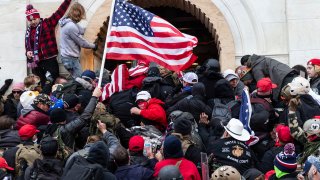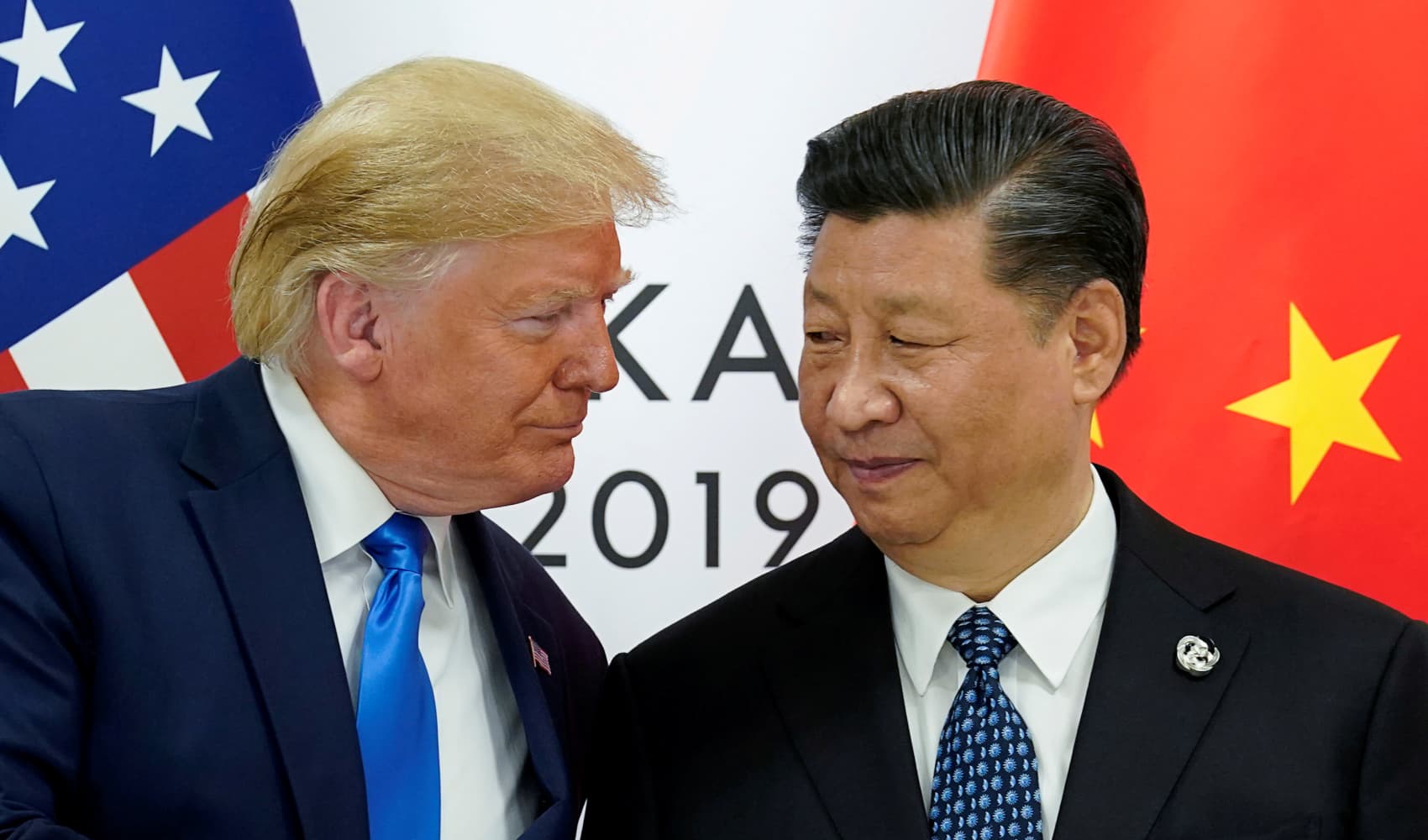
- The Department of Justice said it will not pursue criminal charges against the police officer who fatally shot a woman participating in the Jan. 6 invasion of the U.S. Capitol.
- The woman, 35-year-old Ashli Babbitt, was one of five people who died as a result of the invasion of the Capitol by a mob of former President Donald Trump's supporters.
- An attorney for her family said, "we are not dissuaded from our goal of ultimately vindicating Ashli Babbitt's constitutional rights in the civil arena."
The Department of Justice said Wednesday that it will not pursue criminal charges against the police officer who fatally shot a woman participating in the Jan. 6 pro-Trump invasion of the U.S. Capitol.
The family of the woman, 35-year-old Air Force veteran Ashli Babbitt, objected to that decision and vowed to pursue civil action.
Law enforcement officials "determined that there is insufficient evidence to support a criminal prosecution" against the U.S. Capitol Police officer, the Justice Department said in a press release.
Get Tri-state area news delivered to your inbox. Sign up for NBC New York's News Headlines newsletter.
That determination followed a "thorough investigation" that examined video footage, eyewitness statements and physical evidence surrounding the shooting, the DOJ said.
The investigation has now been closed, the DOJ said.
Money Report
Babbitt was one of five people who died as a result of the invasion of the Capitol by a mob of former President Donald Trump's supporters.
Babbitt was part of the crowd that gained access to a hallway outside the Speaker's Lobby, which leads to the House chamber. She was shot once by an officer as she tried to climb through the broken glass window of a door to the lobby, which had been barricaded from the inside with furniture.
Babbitt was shot in the left shoulder and fell backward onto the floor. She was transported to Washington Hospital Center, where she died.
Officials with the Metropolitan Police Department's Internal Affairs Division told Babbitt's family earlier Wednesday that no criminal charges would be brought against the officer, who has not been publicly identified.
The DOJ's press release said that "the investigation revealed no evidence to establish that, at the time the officer fired a single shot at Ms. Babbitt, the officer did not reasonably believe that it was necessary to do so in self-defense or in defense of the Members of Congress and others evacuating the House Chamber."
"Acknowledging the tragic loss of life and offering condolences to Ms. Babbitt's family, the U.S. Attorney's Office and U.S. Department of Justice have therefore closed the investigation into this matter," the press release said.
Terrell Roberts, an attorney for Babbitt's family, argued in a press release that the facts of the case support a prosecution.
"The actual evidence is this: the officer shot an unarmed woman who was not an immediate threat to him or any Member of Congress," Roberts said.
"That is inconsistent with any claim of self-defense or the defense of others, period," Roberts said. "We strongly disagree with the U.S. Attorney's decision. But we are not dissuaded from our goal of ultimately vindicating Ashli Babbitt's constitutional rights in the civil arena."
Babbitt was a vocal supporter of Trump. Her family told news outlets after her death that Babbitt had gone to Washington on Jan. 6 to protest Congress' certification of President Joe Biden's Electoral College victory.
Trump has never conceded defeat to Biden. Instead, he falsely asserted he won the election and amplified a plethora of baseless voter-fraud conspiracy theories, many of which he continues to spread. Before Congress convened on Jan. 6 to confirm Biden's win, Trump spoke at a rally outside the White House, telling his followers to walk to the Capitol and pressuring Republicans to reject the electoral results.
Throngs of Trump supporters walked across the National Mall to the Capitol, where the protest quickly escalated into a riot. Hundreds of people broke through lines of law enforcement officers and stormed the building, forcing lawmakers, as well as Vice President Mike Pence, into hiding.
The invasion derailed by several hours Congress' efforts to confirm Biden's victory.
Before he left office on Jan. 20, Trump was impeached in the House on an article of inciting an insurrection. He was acquitted in the Senate.






